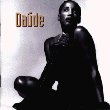|
|

Daúde Winner of the prestigious Sharp Award (the Brazilian equivalent of the Grammy) for Revelation of the Year, Daúde debuts in the world market with a very strong release. Drawing strongly from her northeastern roots in Bahia, home of great composers such as Caetano Veloso and Carlinhos Brown, Daúde mixes folkloric styles, such as repente (or improvisation), with a variety of styles characteristic of both Brazilian and world music. Daúde is very Brazilian and yet has tremendous world appeal. The opening track, Quatro Meninas (Four Girls), finds Daúde rapping with repente artist Miguel Bezerra. Daúde herself is responsible for an unprecedented adaptation of this well-known public domain song. The sounds of a berimbau (a string bow instrument from Bahia) and accordion give a perfect flavor of northeastern Brazilian regional music. With that track, the scene is set for the musical landscape that Daúde will explore throughout this release. In Patativa do Assaré's Vida Sertaneja (Countryside Life), a portrait of the hardships and joys of the hinterlands of Brazil is painted. The choral response is reminiscent of the macumba chants in Afro-Brazilian tradition. The rhythm structure evokes the cadenced drumming of maracatú, another music and dance form traditionally present during the Carnaval season in northeast Brazil. With Jorge Ben Jor's classic hit Chove Chuva (Rain Rain), Daúde switches her journey to Brazilian popular music (commonly referred to as MPB). That theme will continue with Caetano Veloso's Marinheiro Só (Lonely Sailor) and Objeto Não Identificado (Unidentified Object), a song made famous by Gal Costa. With Carlinhos Brown's Véu Vavá (Ol' Vavá), Daúde pays a tribute to her father, one of the members of the famous group Timbalada. It is the same song that also appears in a funky extended dance remix at the end of the album, culminating this musical amalgam. Whether singing MPB, repente, reggae as in Hoje Eu Quero Sair Só (Today I Want to Go Out Alone), or baião as in Anna, Daúde's music is universal with her unique singing style. Her voice adapts to the various genres like a chameleon. The uniting force behind all of this can only be the work of a diva. Like any diva, Daúde is at ease with whatever she sings. Like a Brazilian diva, Daúde takes Brazilian and world music to a new height. Copyright © 1997 Egídio Leitão
|
| © 2011 Luna Kafé |